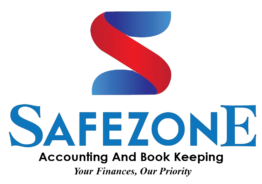In today’s rapidly developing educational landscape, the demand for trustworthy, comprehensive, and obtainable resources of information is greater than ever before. Homework Encyclopedias have become indispensable devices for trainees worldwide, offering a riches of expertise at their fingertips. This post delves into the relevance of Research Encyclopedias, their evolution over the years, and their function in supporting academic success.
As conventional education approaches adapt to digital innovations, learning resources like Homework Encyclopedias remain to serve as foundations of trainee knowing, offering structured and curated material. Understanding their value and impact can help students take advantage of these sources properly in their educational trip.
The Development of Homework Encyclopedias
The idea of encyclopedias go back to old worlds, where expertise was thoroughly recorded and preserved. From the scrolls of the Library of Alexandria to the published quantities of the Renaissance, encyclopedias have historically been valued as databases of human accomplishment and understanding.
With the arrival of the electronic age, encyclopedias have transcended their traditional print layout, ending up being much more interactive and accessible. Digital Homework Encyclopedias now provide multimedia sources, including videos, graphics, and interactive components, which improve the finding out experience and make intricate subjects more comprehensible.
Today’s Homework Encyclopedias are not just offered online yet are also constantly updated to guarantee the details continues to be current question and answer and appropriate. This shift not just equalizes access to info however additionally transforms just how students engage with their studies, facilitating a deeper understanding via diverse knowing methods.
Key Advantages of Research Encyclopedias
Homework Encyclopedias supply many benefits for trainees, instructors, and even parents sustaining their kids’s learning endeavors.

They act as dependable companions, offering structured information that aids in scholastic study and research completion.
Among one of the most significant benefits is their ability to give verified and detailed content. Unlike open-source details, which can usually be unreliable, encyclopedias are curated by experts, making sure precision and integrity. This integrity is critical for students that need trustworthy information for their jobs and study tasks.
Furthermore, Homework Encyclopedias support independent understanding and essential thinking. By urging students to seek information proactively, they cultivate a feeling of interest and initiative, which are crucial skills for long-lasting understanding.
- Comprehensive Content: Encyclopedias cover a broad range of subjects, providing information on topics covering various techniques.
- Interactive Learning: Multimedia aspects engage different learning designs, making information absorbable and appealing.
- Trustworthiness: Curated by professionals, encyclopedias give reputable and accurate details.
- Continuous Updates: Regular updates ensure students have accessibility to the most present info available.
Understanding these advantages permits pupils to optimize their learning prospective by efficiently making use of Research Encyclopedias as component of their research routine.
Exactly How to Use Research Encyclopedias Effectively
To make the most out of Research Encyclopedias, students must adopt calculated strategies to their use. This begins with familiarizing themselves with the layout and navigation of these resources. Understanding exactly how to look for details topics or exactly how to make use of index functions can considerably decrease time invested in study.
Another vital technique is integrating encyclopedias right into wider study techniques. While encyclopedias supply fundamental expertise, they ought to be made use of along with other study techniques for a much more nuanced understanding of intricate topics. This combination of sources broadens a student’s viewpoint and deepens their grasp of subject matter.
In addition, trainees must leverage the multimedia features offered in digital encyclopedias. These can facilitate a much better understanding of difficult concepts with visualization and interactive knowing, thus improving retention and understanding.
Leading Research Encyclopedias Available Today
The world of Research Encyclopedias is large, with numerous alternatives available for trainees of various age and scholastic levels. Below are some highly regarded encyclopedias that have actually stood the test of time and remain to support student success effectively.
- Brittanica Online: Widely known for its authoritative content, Britannica supplies thorough info on a large range of topics, with constant updates and multimedia components.
- Globe Book Online: Provides an easy-to-navigate interface and tailored sources for various age, making certain web content is age-appropriate and interesting.
- Encarta (Historic): Though no more in publication, Encarta established a precedent for electronic encyclopedias and stays a noteworthy reference for its pioneering payments.
- Khan Academy: While not a typical encyclopedia, Khan Academy provides a comprehensive library of instructional material in a style that complements standard encyclopedic sources.
These resources give a superb beginning factor for trainees looking for high-grade information. Their variety guarantees that individuals can discover the best fit for their specific discovering demands and choices.
The Future of Homework Encyclopedias
As technology remains to advancement, the future of Research Encyclopedias shows up promising, with technologies focused on improving individual experience and accessibility to details.

Expert system is most likely to play a considerable duty, using tailored understanding paths and even more instinctive search functions, which might change exactly how pupils engage with these resources.
Moreover, the combination of digital and increased truth could open new possibilities for experiential understanding, permitting students to involve with web content in immersive settings. Such advancements are readied to redefine the instructional landscape, making finding out more interactive and impactful.
The Duty of Educators and Trainees
In this progressing context, instructors and pupils have to adapt to utilize these technological advancements properly. Teachers can guide students in using encyclopedias as component of their educational program, encouraging important thinking and research study skills.
For trainees, the vital lies in staying curious and open to exploring new tools and resources. By welcoming Homework Encyclopedias and comparable instructional technologies, they can boost their academic performance and prepare for the difficulties of tomorrow’s knowledge-driven world.

